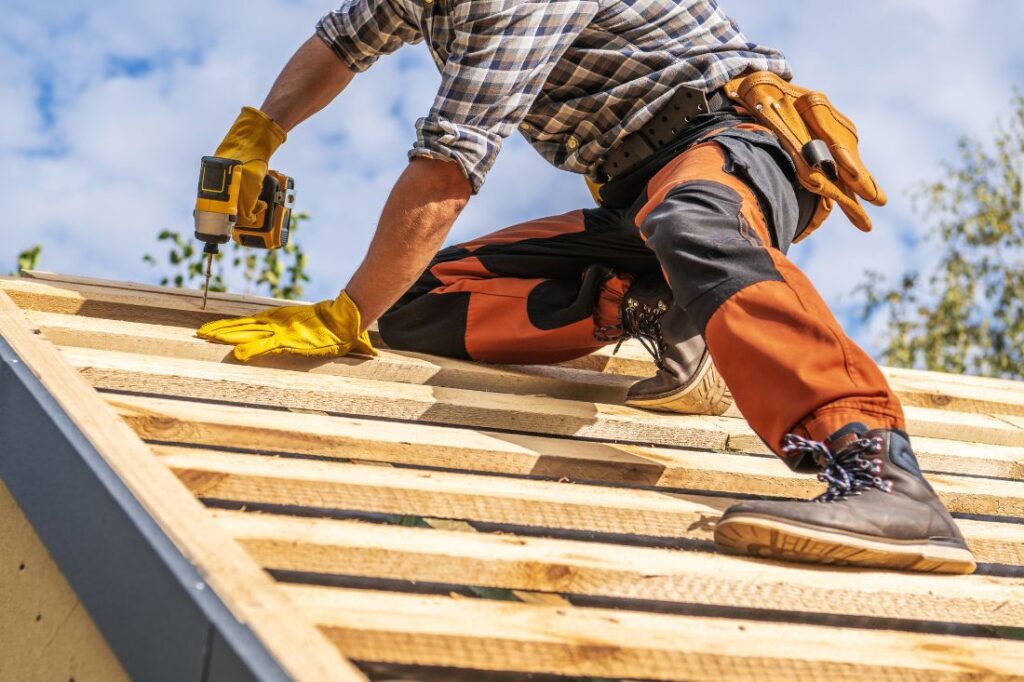What is a construction loan?
A construction loan is a home loan product to assist with construction of a property or to complete major structural renovations. This could range from building a house from the ground up or buliding a granny flat or even structural renovations to your property.
How the loan is funded
Unlike a normal home loan, the bank will provide you with the money from your construction loan in stages via progress payments. This is because when you are building a property, you don’t pay the builder the entire cost of the construction. Instead, you will make progress payments based on each stage of the construction that is completed.
For example, if you are approved for a $500,000 construction loan, each time the builder sends you an invoice for payment of $75,000 after a stage is completed, the bank will pay the builder directly by using the funds from your approved home loan of $500,000.
After the bank makes a payment, the balance of your home loan will increase accordingly to how much has been paid by the bank. In the above example, if this was your first payment, then you will owe $75,000 to the bank. As the bank continues to make payments for each stage, the amount you owe will increase and eventually it will be $500,000 owing at the completion of your property.
Use your money first
The banks require that you pay the builder for your portion of the construction cost first before the bank will start funding the remaining progress payments.
This means, if your building contract is $600,000 and you are borrowing 80% from the bank ($480,000), then you are required to pay the builder the 20% first, which will be $120,000.
You will need to provide receipts from the builder as evidence you have made these payments, before the bank will start funding the next payments.
This process is to ensure that you do not run out of money for the build.
Repayment of the loan
During the construction stage, your home loan repayments will be interest only. This means, you only need to pay the interest each month of your loan and not required to pay principal. However, you can certailny pay more than just the interest if you choose to.
Normally interest only loans have a higher rate than loans with principal and interest (P&I) repayments, but in most cases, the bank will not charge you the higher interest only rate when you take out a construction loan.
At the end of your construction and the total loan amount has been funded and paid to the builder, your loan repayment will automatically change from interest only to P&I.
Valuation
Valuations are required for construction loans just the same as when you are buying an established property. The valuation will be done as an ‘as if completed’ valuation, which means the valuer will need copies of the building plans and specifications along with a list of all inclusions of the property so they can determine what the completed property will be worth.
This valuation amount will be used to calculated your Loan to Value Ratio (LVR) for your loan application and determine the interest rate of your loan.
In the valuation report, the valuer will determine the value of the vacant land and set a value for the building. The combination of these two values will make up the total value of the property and then comparisons will be made to similar properties in the suburb to determine the market value of the property for lending purposes.
One thing to be aware of is that cost does not always equal value. For example, if your land is valued at $500,000 and you are spending $500,000 to build a house on it, it doesn’t automatically mean your property will achieve a valuation of $1,000,000.
The valuer will compare the cost of the build based on industry averages and sometimes you might find that the total value may be less than the value of the land plus the cost of the build so make sure you don’t make the mistake of assuming that a valuation is just simple addition.
In addition to this, the bank will require additional valuations to be completed usually at the beginning of the construction and at the end of construction before they make their final payment to the builder.
Progress payment schedule
Each building contract will have a progress payment schedule which details the numerous stages of the build and how much the builder will charge you for completing each stage.
Different builders will have different progress payment schedules but there are industry standards that most builders subscribe to when setting this.
Here is an example of an industry standard progress payment schedule when building a home.
Slab – this stage involves completing the foundation of your property and usually require 20% of the building cost to be paid at completion. This 20% should include your 5% deposit already paid before construction started.
Frame – this stage involves completing the external frames of the home. This stage usually requires up to 20% of the building cost to be paid at completion.
Lock Up – this stage involves the completion of windows, doors, roof etc which enables the home to be locked up and secured. This stage usually requires up to 20% of the total building cost.
Fit Out – this stage involves the installation of internal fixtures, electricals, plumbing etc. This stage usually requires 30% of the total building cost.
Completion – this stage involves the final touches and works that need to be completed before the property can be handed over to you by the builder. This stage usually requires 10% of the total building cost.
If you are presented with a progress payment schedule that requires more than 50% of the total cost to be paid in the first 2 stages of the construction, you need to be aware and take caution as this could mean the builder is relying on your money to support their projects and could mean a sign that the builder is not as reliable and financially secure in managing their cashflow.
Out of contract items
These are things that are not included in your building contract. Items suchas fencing, blinds, landscaping and driveways are not usually included in a building contract. Therefore, you’ll need to obtain quotes yourself from individual contractors and consider these costs when looking at your building budget.
You also need to ensure these quotes are provided to your mortgage broker so they can pass it onto the valuer to be included in the overall valuation of your property.
Variations
When the builder makes changes to the price of your building contract, this is known as a variation. This could be a price increase or a price reduction due to your selection of certain inclusions and fixtures.
Every variation that is made to the building contract will need to be signed by the builder and customer. You’ll also need to provide this variation to your mortgage broker so they can pass it onto the bank to update their calculations.
Sometimes, as a result of a variation increasing the building contract price, your contributions towards the building cost may be increased if the loan amount is not increased by the same amount.
Handover and Final Progress Payment
When your construction is completed, the builder send their final invoice to you for you to pass onto your mortgage broker so they can send it to the bank to process the payment.
As this is the final payment, the bank will require some additional documents such as:
Certificate of currency of insurance – this is evidence that the property has adequate building insurance
Occupation certificate – this is evidence that the property is safe to be occupied
Please ensure you are aware who will be responsible in arranging the occupation certificate as some builders will include this in the building contract and provide it while others will not and you will need to arrange this as the owner of the property.
Finding this out in the beginning will prevent any delays to receiving the keys to your new home.




